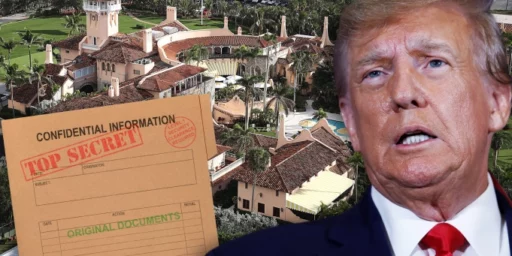Feds Tracking Journalists’ Phone Conversations?
ABC News has, on their blog of all places, a story alleging that federal investigators are tracking the phone calls of journalists.
A senior federal law enforcement official tells ABC News the government is tracking the phone numbers we call in an effort to root out confidential sources. “It’s time for you to get some new cell phones, quick,” the source told us in an in-person conversation.
ABC News does not know how the government determined who we are calling, or whether our phone records were provided to the government as part of the recently-disclosed NSA collection of domestic phone calls. Other sources have told us that phone calls and contacts by reporters for ABC News, along with the New York Times and the Washington Post, are being examined as part of a widespread CIA leak investigation.
The former would be scary indeed; the latter, reasonable if somewhat problematic. The government has to be able to investigate the illegal leaks of classified information by its employees, whether to journalists or enemy agents (and, no, that’s not redundant). Still, one doesn’t want to get back to the good old days of J. Edgar Hoover, either.
Update: Marshall Manson and Jim Geraghty are divided on this one, disagreeing on where to draw the line in protecting classified information and creating a chilling effect on a free press.
I’m not sure where the line is. We should be ruthless in seeking out the leakers and very circumspect in investigating reporters. Like Geraghty, I’m willing to risk the public getting a little less information by making would-be leakers think twice before violating their sworn secrecy. At the same time, Manson is correct that reporters have every right to print stories they obtain. Government should not take any action that would reasonably intimidate those who ferret out news. On the other hand, if their stories undermine classified ops, it’s perfectly reasonable for the DOJ to obtain warrants to examine their phone records and otherwise try to determine the source of the leak so that it can be plugged.






On the other hand, if their stories undermine classified ops, itâ??s perfectly reasonable for the DOJ to obtain warrants to examine their phone records and otherwise try to determine the source of the leak so that it can be plugged.
I agree that this is how and where they should monitor, but is the appearance of the story enough to get a warrant?
I think these leaks show why granting blanket source immunity to reporters is an unwise move, in cases where national security is put at risk due to a leak.
just me: I don’t know the technicalities of the warrant process but would think that a reporter’s published admission that he had been the recipient of multiple illegal leaks would constitute probable cause. And, since the reporter himself would not be facing criminal charges, I would think the bar would be even lower.
This sort of press hysteria was evident decades ago. Anyone who is familiar with the Watergate/Woodstein saga would know that Woodward signaled his source by placing a plant on his balcony. “Deep Throat” signaled a meeting by placing a note inside the WaPo left outside Woodward’s apartment door. Even back in the day, serious journalists and their sources didn’t speak on the phone. Sheesh! Everything old is new again.
These days who can tell which leaks were approved by the administration and which leaks weren’t?
“On the other hand, if their stories undermine classified ops, itâ??s perfectly reasonable for the DOJ to obtain warrants to examine their phone records…”
Ahh, warrants. Judicial oversight. I remember when we had that in the US.
Only problem is that anything that annoys Rove/Bush is considered a national security issue.
Are they tracking Bill Gertz’s calls yet? I want to know who’s been leaking all the classified documents to Gertz over the years.
Fine! Lets have an investigation and force ABC to divulge their sources. Lets find out if their sources are credible. Lets find out if they broke any laws. If ABC people don’t talk lets throw them in jail.
Bye bye America. I’ll remember you and the Constitution fondly…
why didn’t this bit of information come up on Thursday? Looks like someone is dissapointed there was a lack of hysteria and is trying to up the ante
Not all leaks are “illegal.” Many of the most politically damaging leaks do not involve classified information. Some leaks are merely embarrassing. Some are citizens exercising their legal and moral responsibility to report wrongdoing. All of which are good reasons why a warrant should be required for this kind of snooping.
When they came for the journalists I didn’t say anything because I wasn’t a journalist. When they came for the bloggers
I’m just curious how the right-wing blogsphere will feel when the Democrats are in charge of some branch of government again and they (inevitably) do something illegal/immoral and someone blabs to the press which prints the news – what then when the Democratic government uses the FBI, the CIA, the NSA to trace the phone calls and emails and Internet searches of the press to find the identity of the leaker who revealed information about the criminal conduct of a liberal White House or Congress or both? Will you once again agree that it’s okay to seek out these “criminal” leakers of governmental secrets? How much do we really want the government — no matter which party is in control — having unregulated power to go into any aspect of anyone’s life at any time to be able to use that information in any way they see fit?
Orwell’s 1984 was supposed to be a cautionary tale – not a “how to” manual.
tgibbs –
Ah, but you forget, Bushie Boy has re-written that presidential order to say that anything embarrasing to him personally is a matter of national security and must be classified.
Then he classified the order.
Then he classified the law letting you be arrested for violating the order you didn’t know about because it was classified.
What a wonderful world we live in.
There’s certainly a reasonable case to be made for the government being able to use all investigative tools at its disposal to investigate a leak—a leak of classified information is a crime, and deserves to be investigated as such.
What’s disturbing is the bypassing of the procedure for a criminal investigation—no judge, no warrant, no oversight by anyone at all. The potential for abuse is obvious, and this administration’s habit of declaring things classified or public seemingly at whim moves that from “potential for” to “probability of”.
As for the phone records scandal. Isn’t it interesting how the NSA kindly requests phone companies voluntarily participate in providing phone records for a completely legal program critical in fighting the war on terror? A completely legal program for which they could demand cooperation? They’re such nice guys, they wouldn’t dream of using all of the legal powers at their disposal to fight the GWOT. I mean, if a phone company wants to disobey a legal request absolutely CRITICAL to defending our nation, well, it would be too mean to make them cooperate. Riiiight! But it’s all legal. It really, really is. Nothing to see here. Move on.
well; the journalists should be glad that somebody wants to hear the crap they are saying![lol]